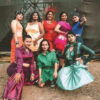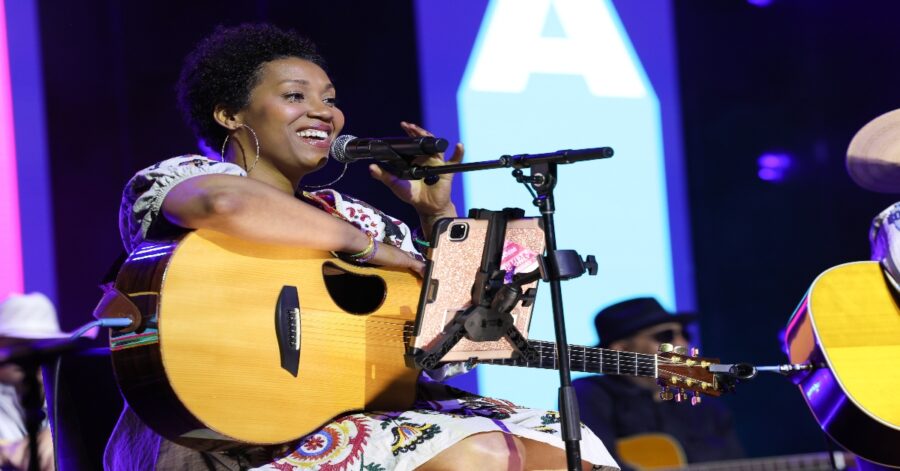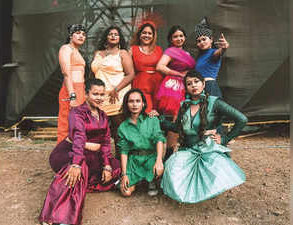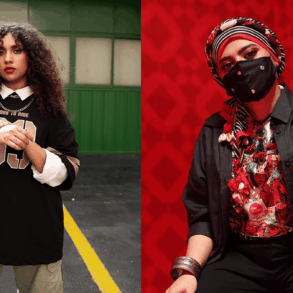Look, we love Beyoncé Knowles-Carter — she’s Queen B. However, she is not the face of Black country music. After the release of her two singles, “16 Carriages” and “Texas Hold ‘Em,” the internet suddenly became hillbillies overnight, donning their cowboy boots and hats and practicing their Southern drawls.
That said, before you add “Yee-haw” to your vocabulary, let’s do a temp check first. Ask yourself if you listen to Linda Martell, Mickey Guyton, or Brittney Spencer. Chances are you don’t know these artists and have never heard their music. And that’s OK! Some country artists — Black female country singers — have slowly created spaces for themselves in the predominantly male and white industry.
Country music’s history is more than that of white men. Here are a few names and faces of Black women in country music you should get acquainted with.
From Linda Martell to Rissi Palmer, many Black country artists continue to influence the masses.
We can’t discuss Black women in country music without highlighting the late ’60s and early ’70s era. Per Song Data, Linda Martell released the song “Color Him Father” in 1969, which later rose to No. 22 on the Billboard Hot Country Singles Chart. The same year, Martell first appeared at the Grand Ole Opry, making her the first Black female to grace the stage.
In August 1970, Martell released her debut album, “Color Me Country,” which peaked at No. 40 on the Top Country Albums chart, per Pitchfork. As expected, her success has continued influencing Black women to enter the country music genre.
In 1987, Dona Mason partnered with country music star Danny Davis to cover “Green Eyes (Cryin’ Those Blue Tears),” per Open Wide Country. The song peaked at No. 62 on the Hot Country Songs chart and was the last time an African American country song charted — until 20 years later.
Rissi Palmer’s intro into country music marked the Black women’s return — or the new start — in country music. The Black Country Music Association started gaining mainstream popularity, per USA Today. Palmer became the face of Black female country music following her self-titled debut album and her 2008 performance at the Grand Ole Opry. Her performance marked the first time a Black woman stood on its stage since Martell in 1969.
Palmer’s success ushered female Black country musicians into the mainstream. Thanks to her, more singers have pivoted to country, including newcomer Julie Williams and R&B singer K. Michelle. Both are Southern gals — Williams is a Flordia native, while K. Michelle comes from good ole Tennessee. The two grew up listening to country music and while Williams started as a country artist, K. Michelle has been in the game for decades as an R&B singer.
According to People magazine, the Tennesse native only went for R&B because it was the “easiest route.” But country music has always been her core identity; now, she’s making it her artistry. Palmer, Guyton, Spencer, and more join the ranks of Black women who continue to create space for Black women in the genre.
The next generation of country music will focus on Black women.
Since Martell’s Grand Ole Opry performance, only seven other Black women have sung at the Nashville venue. The work for more representation is slow, but it’s coming. According to PBS, Country Music Television’s (CMT) 2021 Next Women in Country Class had six Black artists in its cohort, unprecedentedly in the network’s 40-ish year history. Included in the list were names like Brittney Spencer and Sacha, two young Black women who grew up with country music in their homes.
Spencer’s artistry leans towards The Chicks and Dolly Parton but is wholly unique and reflects her experiences as a Black woman.
“There are four songs on my EP, and two of them are protest songs,” she told PBS. “But that’s not all I write. I might write about racism today. I might write about a guy. I might write about tying my shoelaces or putting my boots on.”
Sacha’s lyricism and sound have a similar feel. Per Watershed Magazine, the Canadian native took inspiration from a pre-pop Taylor Swift, noting how she admired Swift as “the girl playing guitar and writing songs and hitting Nashville and breaking records and barriers like nobody’s business.” The influence pushed her to start performing at open mic nights and eventually consider music as a full-time gig.
In 2020, Sacha released her second extended playlist, “The Best Thing,” which earned a spot on the Canadian Country Billboard chart and propelled her from the indie scene to the mainstream.
Black women in country music are taking the genre to the next level, including Beyoncè. In fact, Queen Bey’s country album, “Act II,” is set for a March 29, 2024, release. However, Guyton, K. Michelle, and Miko Marks are other country artists you should add to your Apple playlist. After all, we know the future is Black. Now, it’s Black and country.
Follow MEFeater on Twitter, Instagram, Facebook, and Pinterest for more music news and updates.
This post was originally published on this site be sure to check out more of their content.







